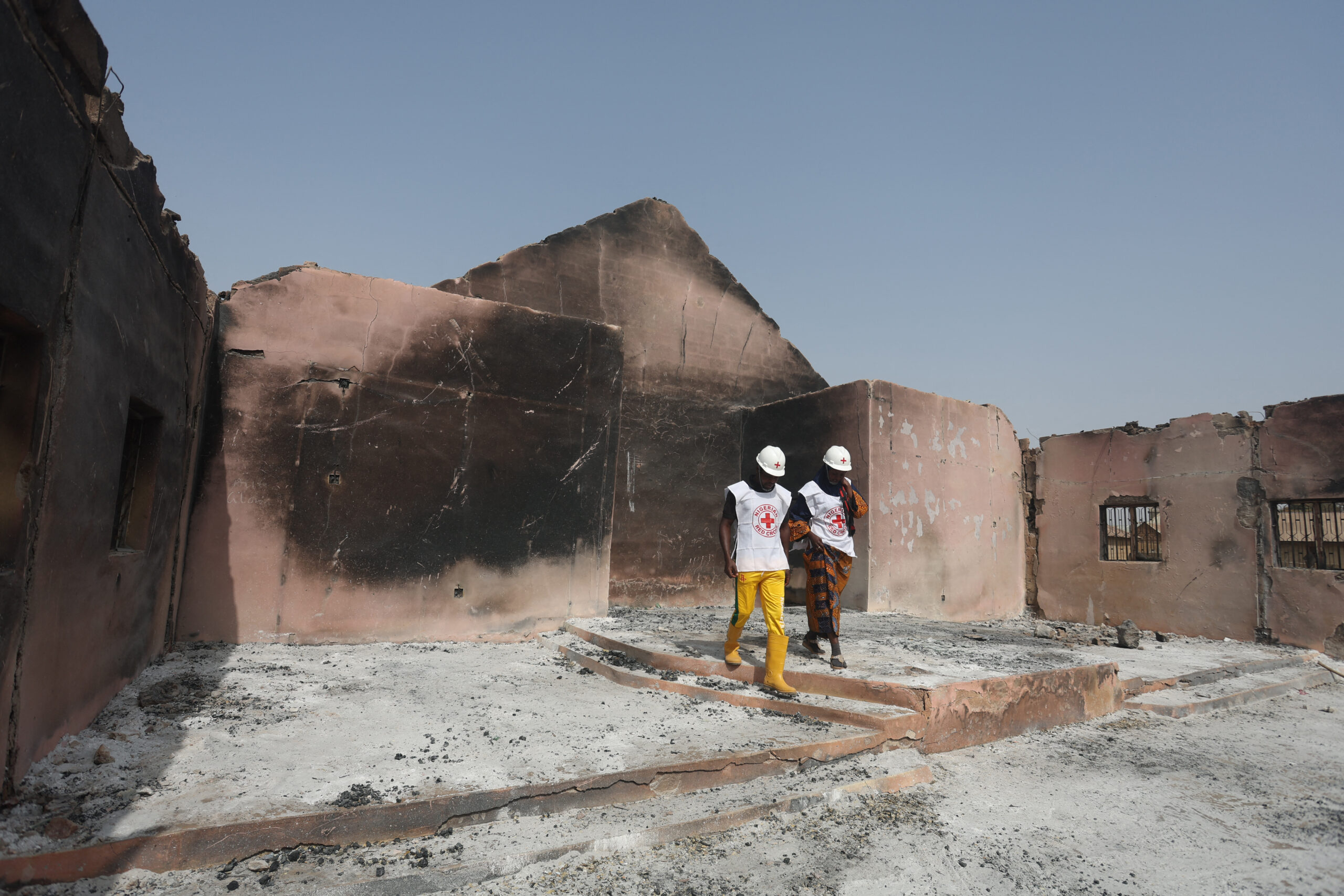
On June 17, the International Religious Freedom Summit was held in Nairobi, Kenya. Recently, 200 Christian IDPs (Internally Displaced Persons) were massacred in Nigeria.
Terrorist groups like Al‑Shabab frequently also target Christians in Kenya.
Dr. Gloria Samdi-Puldu, president of the Nigerian-based LEAH Foundation, supports girls and women like Leah Sharibu, kidnapped by the extremist group Boko Haram in 2018 for refusing to renounce her Christian faith. Samdi-Puldu, who is exhausted by the trauma she faces daily, shared that religious persecution is finally being recognized, giving her reason for hope.
What she may not realize is the actual lack of interest in combating religious persecution.
KOLA SULAIMON/AFP via Getty Images
The world is facing one of the fastest-growing human rights crises: religious persecution, increasingly escalating into ethno-religious cleansing and genocide. And it’s growing in many parts of the world.
Yet liberal politicians, media outlets, and NGOs too often stay silent. This abandons what former President Bill Clinton intended when he championed the International Religious Freedom Act in 1998, making religious freedom a cornerstone of American foreign policy. This has created a vacuum filled by conservative organizations, which—while doing important and lifesaving work—can also bring ideological baggage to what should be a universal human rights cause. The cost is real—120,000 Armenians were ethnically cleansed in 2023 with little Western media attention. Uyghur Muslims in China, Baha’is in Iran, Alawites in Syria, and Christians in Nigeria suffer daily atrocities. When I meet survivors of religious persecution, they ask, “Why don’t Western liberals care about us?”
Robert Řehák, the Czech Republic’s ambassador for Holocaust issues, interfaith dialogue and freedom of religion, leads the International Religious Freedom or Belief Alliance (IRFBA), sometimes called the Article 18 Alliance. This intergovernmental coalition brings together 43 countries, working collectively to promote and defend freedom of religion or belief worldwide.
“The struggle for religious freedom is a necessity because the world is increasingly radicalized and polarized. To combat this, we need avenues for dialogue that can counter these dangerous tendencies. It is also a fight for peace, prosperity, and the prevention of future conflicts,” Řehák told Newsweek.
Hard Lessons from the Field
In Beirut, Lebanon, I recently met Ablahad Stayfo, an Assyrian/Syriac activist who spent 15 years opposing the Assad regime in Syria. When I interviewed him in 2012, I asked whether the opposition valued religious freedom. He dismissed the question. Now, in 2025, he told Newsweek, “You were right, Nuri. We should have made it a priority. The progressive politicians we worked with didn’t care. And now Syria’s future is uncertain.”
My organization ADFA commissioned Layal Nehme to document Christians who fled Syria and Iraq to Lebanon. When I recently asked what happened to those she interviewed, her response was devastating.
“Unfortunately, most have emigrated to Canada or Australia. While I am happy for them, I am devastated that the numbers of Christians are dwindling,” she said.
The Price of Liberal Silence
Why the silence? Too many liberals fear that talking about religious freedom will align them with religious conservatives. But this fear is morally bankrupt. The regimes that persecute religious minorities are also the ones that oppress women, LGBTQ people, journalists, and dissidents.
When the movement lacks progressive voices, it risks becoming ideologically skewed. Without sustained political pressure from across the spectrum, authoritarian regimes and extremist groups face little consequence for destroying religious communities.
Time to Act
At the IRF Summit in Washington, D.C., this January, I urged humanitarian organizations to improve their media outreach—to keep these stories alive and visible. This benefits both the media and the communities they aim to help.
I urge my progressive friends to reclaim religious freedom as a liberal value:
—Show up at conferences and advocacy events.
—Speak out about religious persecution.
—Support bipartisan initiatives like the United States Commission on International Religious Freedom (USCIRF).
—Cover religious freedom violations with urgency.
—And encourage more countries to join the International Religious Freedom or Belief Alliance (IRFBA).
This is not a fight that belongs to the right or the left. When we think that way, we fail those who need us most. It’s time for liberals to join the fight again—a cause they themselves began—and to understand that it is their struggle as well.
Listening to eyewitnesses and survivors from several African countries—of different faiths—was both heart-wrenching and deeply important. Several African activists I spoke with criticized the IRF Summit, saying it should have been organized by Africans themselves. That critique matters. But if local capacity or resources were lacking, then the summit in Kenya was still a meaningful start. It laid the foundation for continued cooperation. Importantly, both Muslims and Christians were given the floor to address the attendees.
To ignore the growing threat to religious freedom is to ignore Article 18 of the Universal Declaration of Human Rights—and to fail those who need us most.
Nuri Kino is an independent investigative multi-award-winning reporter and minority rights expert.
The views expressed in this article are the writer’s own.
